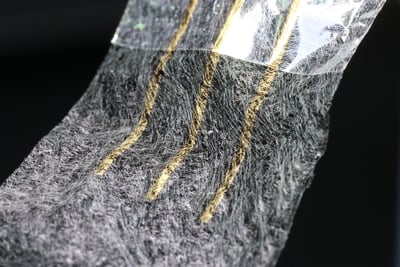PRESS RELEASE
- Research
- 2019
Ultra-soft electronics to monitor dynamically pulsing cardiomyocytes
Authors
Sunghoon Lee, Daisuke Sasaki, Dongmin Kim, Mami Mori, Tomoyuki Yokota, Hyunjae Lee, Sungjun Park, Kenjiro Fukuda, Masaki Sekino, Katsuhisa Matsuura, Tatsuya Shimizu, and Takao Someya
Abstract
In biointegrated electronics, the facile control of mechanical properties such as softness and stretchability in electronic devices is necessary to minimize the perturbation of motions inherent in biological systems. For in vitro studies, multielectrode-embedded dishes and other rigid devices have been widely used. Soft or flexible electronics on plastic or elastomeric substrates offer promising new advantages such as decreasing physical stress and/or applying mechanical stimuli. Recently, owing to the introduction of macroporous plastic substrates with nanofibre scaffolds, three-dimensional electrophysiological mapping of cardiomyocytes has been demonstrated. However, quantitatively monitoring cells that exhibit significant dynamical motions via electric probes over a long period without affecting their natural motion remains a challenge. Here, we present ultrasoft electronics with nanomeshes that monitor the field potential of human induced pluripotent stem cell-derived cardiomyocytes on a hydrogel, while enabling them to move dynamically without interference. Owing to the extraordinary softness of the nanomeshes, nanomesh-attached cardiomyocytes exhibit contraction and relaxation motions comparable to that of cardiomyocytes without attached nanomeshes. Our multilayered nanomesh devices maintain reliable operations in a liquid environment, enabling the recording of field potentials of the cardiomyocytes over a period of 96 h without significant degradation of the nanomesh devices or damage of the cardiomyocytes.

Nature Nanotechnology : https://www.nature.com/articles/s41565-018-0331-8

